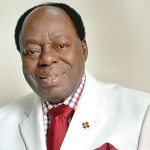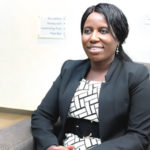Recently, 15-year-old Franklin Ekene was celebrated for emerging as the highest scorer in the 2019 Unified Tertiary Matriculation Examination, having scored 347 out of the 400 points obtainable.
Unfortunately, his university of choice, the University of Lagos, insisted it could not offer him admission on account of his age, citing ‘official regulation’ of a minimum of 16 years for prospective applicants.
This, expectedly, has generated diverse reactions from stakeholders, many of who see such regulation as limiting and not in sync with modern realities.
PDP to APC: Don’t drag us into your crisis
In other climes, it is not unusual to see children obtaining university degrees long before attaining the age of 20 years. Indeed, recently, Daniel Obaji, a Nigerian youngster, graduated from the New York University, Abu Dhabi, at the age of 18 years.
Daniel will enroll for his PhD in Biology in New York this September, in Computational Biology (a combination of computer studies and biology).
The question is: what is the fate of the likes of Daniel Obaji and other precocious children in Nigeria being tied down by limiting ‘regulations’ at a time the age of knowledge explosion is reducing steadily?
As of today, every candidate seeking university admission must sit for and pass the Unified Tertiary Matriculation Examination (UTME) conducted by the Joint Admissions and Matriculation Board (JAMB), and JAMB stipulates clearly in its brochure the rules and regulations guiding the admission process, among which is the 16 years minimum age qualification.
JAMB insists that a candidate for admission must have attained the age of 16 or will do so on the first day of October in the year of candidature, among other conditions.
Based on Nigeria’s 6-3-3-4 education policy and national curriculum, a child is expected to be in Primary One at age five, spend six years and another six years in secondary school. That effectively puts the age of such a child at 17. There are exceptional cases though, when a child is done with his secondary education at 16.
This is an extant regulation which every Nigerian university is expected to follow. Curiously, this policy is often observed in the breach, even by JAMB itself. Some have argued that if the examination body is serious about the policy, it wouldn’t have allowed candidates below the specified age to sit for its examination.
Now, many universities, especially the privately owned institutions, only consider academic qualifications for admitting students. Even the Obafemi Awolowo University, Ile-Ife, a public institution, does not discriminate on account of age.
The university’s spokesman, Mr Abiodun Olanrewaju, told Tribune Education that the university would “admit even 12 year-old candidate if (such) satisfies all academic requirements.”
But universities such as University of Lagos, University of Ibadan (UI) and University of Ilorin (UNILORIN), for example, are known for their strict regulation on age of entry and academic qualification.
In response to the case of 15-year-old Ekene who is about being denied admission by UNILAG on account of age, the spokesman of the University of Ibadan, Mr Olatunji Oladejo, said, “Here in UI, such a student is free to defer the same admission to when he or she will be up to 16.”
However, the deputy vice chancellor (academics and research) at the University of Lagos, Professor Oluwole Familoni, said UNILAG still sticks to the age limitation policy because it is a government policy and also as a guide against immature behaviour on campus.
According to him, it is not only academic performance that qualifies a candidate for university admission, but also sociological and psychological maturity.
“UNILAG is clear about this age restriction, but it is unclear why many students who know they are not up to 16 would still go ahead to select UNILAG as their first choice,” he said.
Many candidates had fallen victim to this policy in the past. David Okorogheye of Starfield College, Fagba, Iju, Lagos, was just 15 when he took the UTME last year and scored over 300 out of 400 marks. He also had nine A1s in the West African Senior School Certificate Examination. But these could not earn him admission to UNILAG.
“My daughter who is now in 300 level at Covenant University, Ota, Ogun State, was also denied admission by UNILAG three years ago because she was below 16 years then,” Mr Chris Ugorji, a former director/principal at Federal Science and Technical College (FSTC), Yaba, Lagos, also said.
But there seems to be a preponderance of opinions to the fact that Nigeria is not ready for ‘underage admission’. The likes of former Minister of Education, Professor Chinwe Obaji; the president of Academic Staff Union of Universities, Professor Abiodun Ogunyemi; former vice chancellor of UNILAG, Professor Oyewusi Ibidapo-Obe; and the national president of the Parent-Teacher Association of Nigeria, Alhaji Haruna Danjuma, all believe that premium must be put on psychological maturity and not just on academic brilliance.
These, they argued, would enable students cope with the university environment where they are expected to live some level of independent life. ‘Underage’ students, they said, would find it very difficult to cope effectively in Nigeria’s public university environment.
They noted that many universities even in the western world set age limit for admission, despite their advanced technology and student-friendly environment.
Citing the University of Nottingham and University of Kent, both in the United Kingdom, Professor Ogunyemi said: “You can be given admission into those schools only if you are up to 18 (years); and anybody below that age is considered to be a child.”
If that rule is going to be bent for “exceptional” children, he said, such a child must be provided with special arrangement that will involve his or her parent.
“How many parents in Nigeria are ready to sign undertaking to perform such supportive roles for their underage children in universities? That is a big question for all of us,” he said.
Obaji said only private universities, especially the faith-based ones, are well positioned to take care of such juvenile undergraduates.
“Some of those schools take care of their students as if they are still at home with their parents. They live in hostels within the school community. They don’t cook on their own. They must attend classes and also religious fellowship. They cannot just leave campus at will. They even have dress code and all that. So, a 14 or 15 year-old student should be able to cope in such an environment,” Obaji said.
Professor Ibidapo-Obe said: “My take in this is that university may run an extension of the boarding system with matron/patron in place, and not warden/master that we have now, to live with them.
“On the other hand, universities that have accommodations on their campuses can probably place such students to live with teachers as if they are with their parents. By that, we would have a place for such students.”






